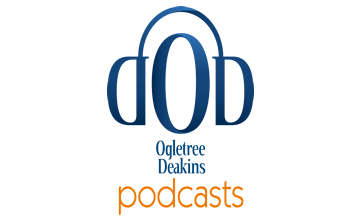Podcast: Play in new window | Download (Duration: 25:21 — 34.8MB) | Embed
Subscribe: Apple Podcasts | Spotify | TuneIn | More
In this installment of Multistate Monday, the co-chairs of the Multistate Advice and Counseling Practice Group, Dee Anna Hays (shareholder, Tampa), Lucas Asper (shareholder, Greenville), and Susan Gorey (of counsel, Indianapolis) provide an overview of the most pressing issues that multistate employers will be tracking in 2024. Our speakers tackle hot topics for the year, including OSHA’s amended recordkeeping and reporting requirements, OSHA’s national emphasis program on heat illness prevention, the NLRB’s final rule on joint employment, the DOL’s rule on independent contractors, the Supreme Court’s upcoming Chevron deference opinion, and federal and state developments in the area of noncompetition laws. Finally, Dee Anna, Lucas and Susan discuss the trend to legalize recreational marijuana use and various kinds of state paid leave requirements.
